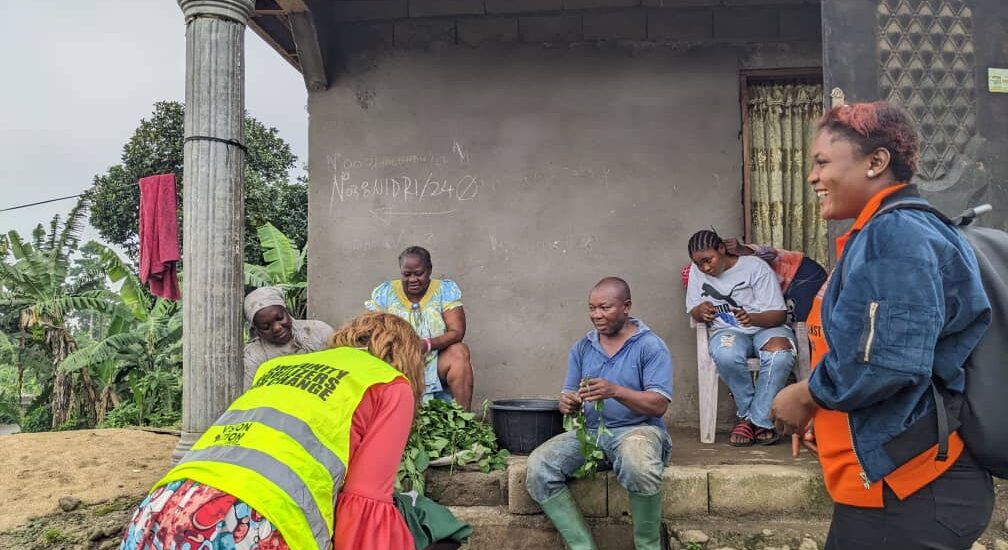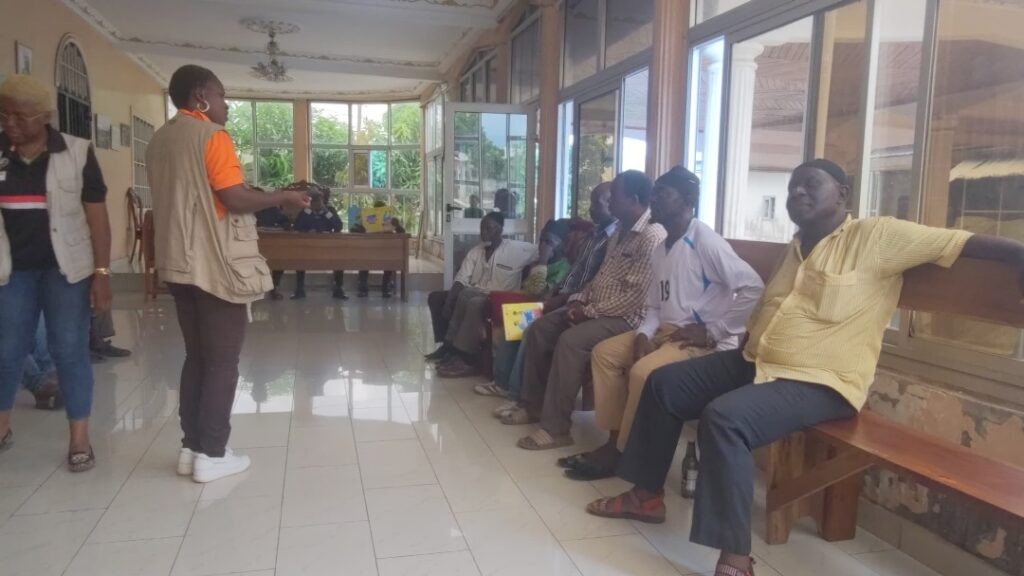- June 25, 2024
- Posted by: Viacame Communication
- Categories: Advocacy, community development, Gender

It is imperative to recognize that men play a pivotal role in shaping SRH outcomes. By shifting the narrative to centre around men, we not only broaden our understanding of SRH but also foster a more inclusive and comprehensive approach to promoting health and well-being for all.
Introduction
In the discourse surrounding sexual and reproductive health (SRH), the focus often gravitates towards women and girls, however, Placing men at the forefront of discussions on sexual and reproductive health and rights (SRHR) is crucial for fostering gender equality and empowerment. By engaging men as allies and advocates in the fight for SRHR, we challenge harmful gender norms and promote a culture of equality. Key strategies include promoting positive masculinity by redefining traditional norms, educating and empowering men on SRHR issues, fostering supportive relationships based on equality and consent, advocating for policy changes to support women’s SRHR and other marginalised groups, and creating safe spaces for dialogue between men and women. Through these efforts, we can create a more inclusive society where individuals of all genders can make informed choices about their sexual and reproductive health, dismantling barriers and promoting dignity, autonomy, and equality for all.
Traditionally, discussions about SRH have tended to overlook men’s experiences, needs, and responsibilities. stigma around help-seeking and limited access to SRHR information and services perpetuate traditional gender roles, hindering men’s involvement. Cultural taboos and power dynamics often discourage men from participating in reproductive decision-making. Additionally, the stigma surrounding male participation in reproductive health and toxic masculinity contributes to gender-based violence and disparities in access to SRH services
However, men’s sexual and reproductive health is a multifaceted issue that encompasses a wide range of factors, including sexual behaviours, contraceptive use, fertility, fatherhood, and mental health. By examining SRH through a male-centric lens, we can address existing gaps, challenge stereotypes, and empower men to take an active role in their own health and the health of their partners and families.
One of the key aspects of men’s SRH is their role in family planning and contraception. While the burden of contraception has often fallen on women, involving men in family planning decisions can lead to more equitable and effective outcomes. Men’s participation in contraceptive use and decision-making not only promotes shared responsibility but also enhances communication and mutual respect within relationships. Encouraging men to explore a diverse range of contraceptive options empowers them to support their partners in making informed choices based on their preferences, lifestyles, and reproductive goals.
Moreover, the promotion of responsible sexual behaviours and healthy relationships is essential for men’s SRH. This involves educating men about consent, respect, and communication in sexual encounters, as well as promoting safer sex practices to prevent the transmission of sexually transmitted infections (STIs) and HIV. By fostering a culture of openness and accountability, we can challenge harmful attitudes and behaviours that perpetuate gender-based violence and sexual coercion.

Another critical aspect of men’s SRH is their mental and emotional well-being. Societal expectations surrounding masculinity often discourage men from seeking help or expressing vulnerability, leading to stigma and isolation. Addressing men’s mental health needs within the context of SRH requires creating safe spaces for men to discuss their concerns, access support services, and challenge the notion that seeking help is a sign of weakness. By promoting emotional resilience and self-care practices, we can empower men to prioritize their mental health and seek assistance when needed.
Additionally, acknowledging men’s reproductive rights and responsibilities is fundamental to promoting gender equality and equity in SRH. Men have the right to make informed decisions about their reproductive lives, including whether and when to become fathers. Providing men with access to reproductive health services, including fertility counselling and infertility treatment, ensures that their reproductive choices are respected and supported.
In conclusion, placing men at the centre of the conversation on sexual and reproductive health is not only necessary but also transformative. By recognizing men’s experiences, needs, and agency in SRH, we can create a more inclusive and equitable approach that benefits individuals, families, and communities. Empowering men to take ownership of their sexual and reproductive health fosters healthier relationships, promotes gender equality, and contributes to overall well-being for all. It’s time to redefine SRH by embracing a holistic and male-inclusive perspective that honours the diversity of human experiences and aspirations.

Daddy, brother, i want to tell you a screte YOUR BODY YOUR HEALTH, YOUR CHOICE

a beautiful piece I hope you enjoy